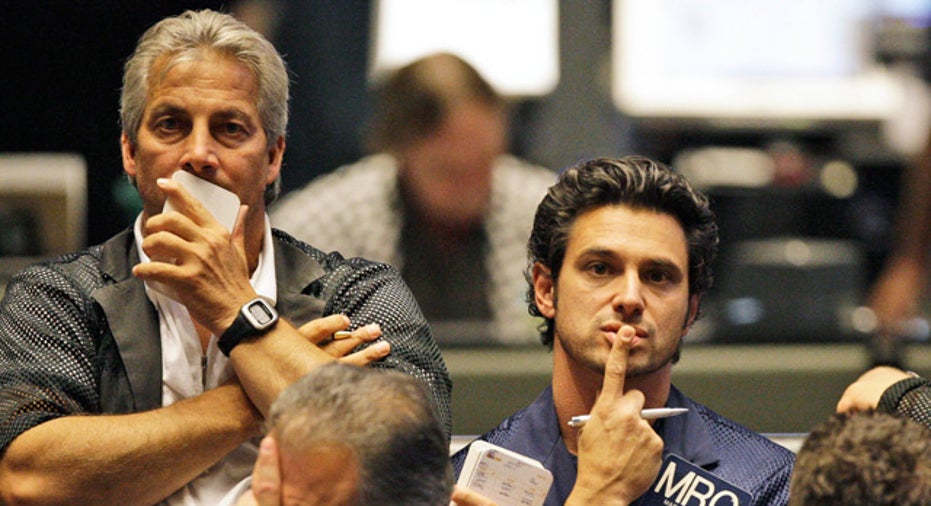More Risk Could Lead to More Economic Reward

In the aftermath of the worst financial crisis since the Great Depression, risk became a four-letter word U.S. regulators worked diligently to squash. But it’s a practice Thomas Donohue, president and CEO of the U.S. Chamber of Commerce -- a business-oriented lobbying group, said is one of the keys essential to reigniting the American growth engine.
It’s no secret the U.S. economy has struggled to maintain robust levels of economic growth in the aftermath of the Great Recession. Economic expansion as measured by gross domestic product has been choppy for the last nine quarters as it vacillates between growth levels of 4% and -0.9%. Despite rising consumer confidence and continued recovery in parts of the economy including the housing and labor markets, those sluggish growth rates, combined with tepid inflation levels have made it difficult for the Federal Reserve to justify a path higher for short-term interest rates, which were lowered to historic lows of near-zero percent during the 2008 financial crisis.
In prepared remarks Wednesday at the Nasdaq (NASDAQ:NDAQ) MarketSite in Midtown Manhattan, Donohue said hasty reforms designed to prevent another financial meltdown, though perhaps well-intentioned, did not focus on creating a nimble regulatory system to identify potential problems early. Rather, they worked to eliminate all risk-taking in financial markets.
“No one believes that our financial system should be like the Wild West,” he said. “However, we need to preserve risk taking. The equation is simple: No risk, no growth, no jobs, no prosperity. We can find the right balance.”
Donohue told FOXBusiness.com there’s a right way to balance necessary risk taking and excessive risk taking, but it isn’t through the attacks and limits that have been imposed on businesses thus far. He said those businesses need to be able to provide the kind of investment tools and services that consumers and U.S. investors need to be successful. The way to do it is by loosening the restrictions and allowing those institutions to take more risk.
That solution, he explained, would solve many of the woes still plaguing the U.S. economy: He argued the economic growth healthy risk taking would help create would also assist in putting people back to work, provide more capital for all levels of the financial community, and allow for more prosperity for those burdened by government-imposed regulatory burdens.
“If you can get to 3% [growth] on a regular basis…you’re going to be alright. But you had 0.8% growth in the first quarter, and then we went to 1.4% at the end of last year, I don’t know what this quarter will be, but I think it’s going to be worse. When you get down to those levels, you’re not creating jobs, you’re not putting people to work, you’re not stimulating the economy to create the kind of growth to sustain our economy,” Donohue said.
What’s getting in the way of allowing risk taking to move back into focus is new regulation that’s been piled on top of old regulation. Some parts of the Dodd-Frank financial reform law have been helpful, he said, including provisions that addressed eliminating systemic risk around derivatives, like collateralized debt obligations in which loans with underlying collateral were pooled to the point no one knew exactly what was in them, and structural issues around home mortgages.
However, he said it’s time to put the Wall Street blame game to rest and focus on solutions to get the economy firing on all cylinders again.
"No risk, no growth, no jobs, no prosperity. We can find the right balance."
“They’ve been trying to use an almost one-size-fits-all deal on a lot of these new regulations, and you can’t do that…[the regulators] are on a field day and they’ve got politicians from both parties beating up on the one thing that can turn the system around,” he said.
Among the changes Donohue and the U.S. Chamber of Commerce have called for include a bipartisan five-person Federal Stability Oversight Council with additional Congressional oversight; due process reforms in SEC legal proceedings to restore trial by jury; a stop to the Labor Department’s fiduciary rule; create an "off-ramp" for organizations before they're deemed too big to fail; and a plan, which will be released next week, to reform the Federal Reserve to make it more transparent and hold it more accountable under “sweeping” regulator powers granted under Dodd-Frank and Basel III.
“Our financial services industry isn’t a problem to be solved, limited, and controlled. It’s a key ingredient to boosting our economy. Nothing I’ve proposed would stand in the way of a vigorous ongoing effort to root out genuine fraud or other criminal conduct in the financial industry,” he said.



















